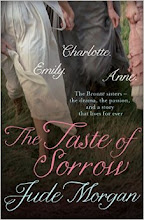Is wedded unto thee, as hearts are wed..."
...claimed Henry Wadsworth Longfellow, and I'm inclined to agree. Spring gives rise to thoughts of newness (I may decorate, or at least re-arrange, my bedroom; I want a new job; I'll start drinking Camomile tea; when will my Croquet set arrive?) and of romance (surely this year will come "a big smashing creative burgeoning burdened love", as Sylvia Plath once put it, adding plaintively, "Let me have him for this British Spring..."). She meant Ted. She got him.
In the true spirit of Plath, then, this morning, sun blazing, I threw on a flowery shirt dress and converse, slicked on some red lippy and cycled (I love my bike the way littler girls love ponies) into the grounds of the stately home that butts up against my back garden. A mile to the big house, and past it, down winding country lanes to a rocky crater where I would be sheltered from wind and tourist alike. It was close to too much - fat bees buzzed past my head, skylarks darted above, the creak of tree buds popping open was almost audible. It was like standing in a cloud of spring poetry. I spread out my grandparents old tartan travelling rug and settled into mackerel pate and cucumber sandwiches, dates, elderflower juice... I am not exaggerating when I say I took out my ipod (one day soon it will be a gramophone) and fired up some forties dancehall ballads. There was no-one for miles. The decades melted away, and once I had climbed inside my book, for a few hours, I wasn't even me.
At the Cambridge Wordfest this weekend, I had stumbled (figuratively - I'm fairly steady on my feet) on a talk by Owen Sheers about his new novel, White Ravens, which made me want to read his last novel, Resistance; and so this morning, in my private 1940s crater, I did. Happily, and entirely non-coincidentally, Resistance is set in an imagined 1945, where the D-Day landings have failed and German troops are invading British shores. It is also set in the Welsh countryside, which is not entirely dissimilar to that of the Peak District, where I live.

Now, I'm wary of novels written by poets - for one whose craft is paring down, finding the perfect word or expression, the lengthy telling of a story with many characters and plot twists is surely an arduous task, and one that many have not met appropriately. So far though, I'm good with Sheers, though I may be giving him a long leash on account of his passion for landscape poetry, which I share with all my heart. Indeed, the talk on Sunday was lead for some time in that direction, and Sheers made the comment that it is not just that landscape shapes us, but that crucially, it is the landscape that we encounter as children that most influences our adult selves. I was reminded of Wordsworth (Sheers was Poet-in-Residence at Grasmere some years ago), and of the impact that The Prelude had on me as an A-Level student, when this idea of landscape-as-parent was first explicitly laid before me. I was deeply affected by it, by the reflection of my own experiences that I found in the poem. As an English teacher, I now call this, in my professional capacity, 'pathetic fallacy,' but it is so much more than that. Like Sheers, I was brought up amongst hills and peaks, stone farmhouses and weather-beaten woodland, and the power that a cloudy day can have over one's mood, the electric charge in the air the hour before a storm, the heightened sensations that accompany the haze of midsummer, these are not mere literary technique, but all-consuming events. Here, in these moments,landscape teaches, points out, shows us other ways of seeing. It becomes a part of us, of who we are, and of who we will become.
I lived in London for five years, a period which ended because I could not live without my fields and peaks any longer. I was limbless, without this landscape. Unwhole. "It holds us more than we ever reckon, the few square miles of territory where we are born and bred," said another great author of place, Daphne du Maurier. And she knew what she was talking about. Menabilly is the strongest character in every one of her books.
The romance of Spring, placed in a landscape like the one in which I am lucky enough to currently live, is infectious. It takes me on journeys I would never embark on, should I still live in the city. It has taken me on today's journey, along country roads to hidden valleys, to 1945, to an imagined past, to the carefully chosen words of an author I may never have glanced at had my ears not pricked up at that word, "landscape". Perhaps we read only what we already know, even if on a subconscious level. Perhaps we each fit into a specific time or place, even if we are born outside of it - I know I've felt homesick for places I've never been. Perhaps Resistance will be the perfect novel for this final week of the Easter holidays.


1 comment:
I thought Resistance was brilliant so looking forward to thenext one
Post a Comment